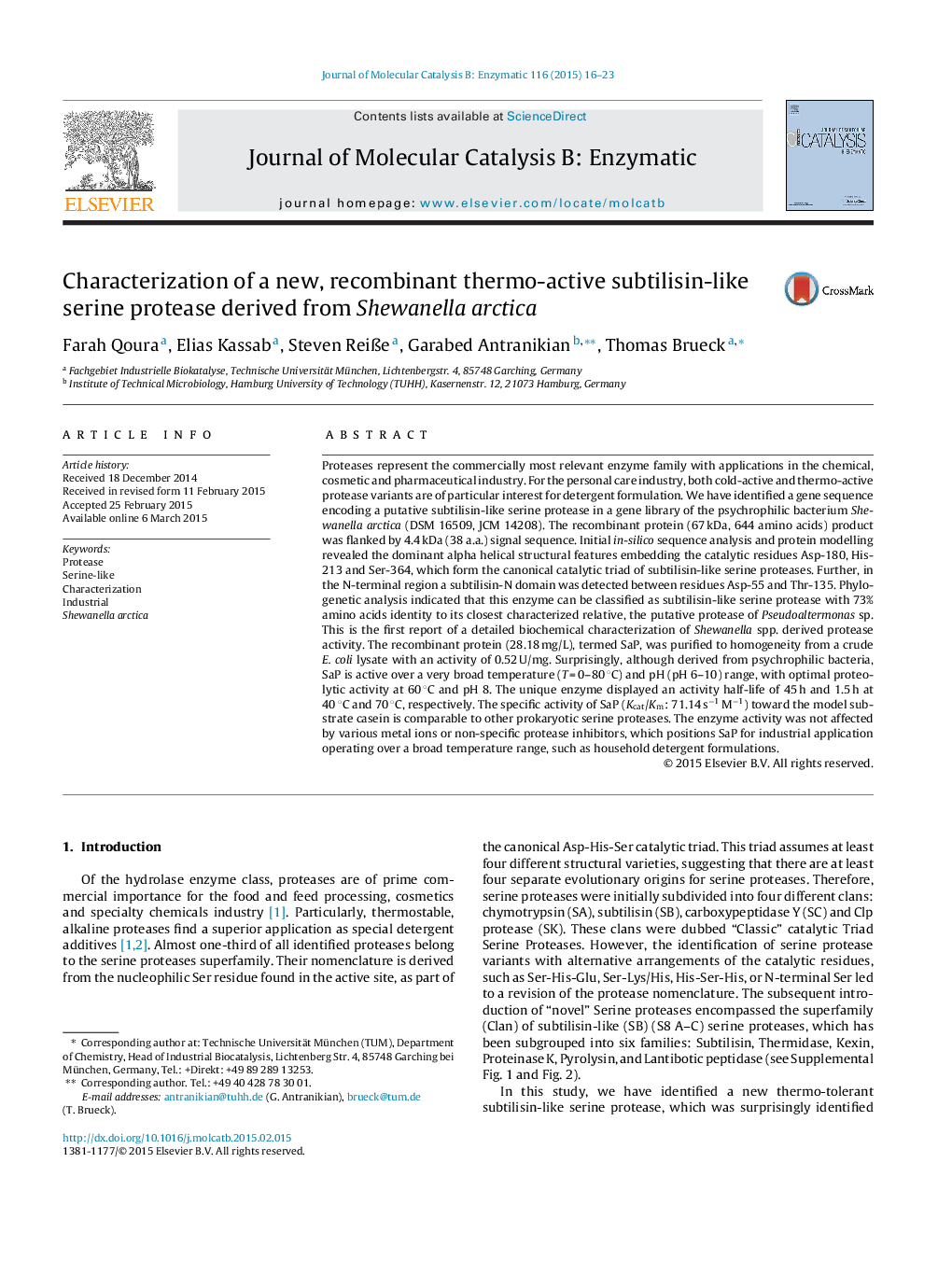| Article ID | Journal | Published Year | Pages | File Type |
|---|---|---|---|---|
| 69379 | Journal of Molecular Catalysis B: Enzymatic | 2015 | 8 Pages |
•The hydrolase enzyme family proteases comprise the commercially most important activities with application in the food/feed, cosmetics, pharmaceutical and fine chemical sector.•We have identified and characterized a new, subtilisin-like serine protease from the psychrotophic eubacterium Shewanella arctica.•The recombinant enzyme is active over a very broad temperature (T: 0–80 °C) and pH (pH 6–10) range, with optimal proteolytic activity at 60 °C and pH 8 respectively.•The enzyme exhibits an extremely long half-life of 45 h and 1.5 h at 40 °C and 70 °C, respectively.•The enzyme tolerates the presence of several metal ions and detergents without affecting activity.
Proteases represent the commercially most relevant enzyme family with applications in the chemical, cosmetic and pharmaceutical industry. For the personal care industry, both cold-active and thermo-active protease variants are of particular interest for detergent formulation. We have identified a gene sequence encoding a putative subtilisin-like serine protease in a gene library of the psychrophilic bacterium Shewanella arctica (DSM 16509, JCM 14208). The recombinant protein (67 kDa, 644 amino acids) product was flanked by 4.4 kDa (38 a.a.) signal sequence. Initial in-silico sequence analysis and protein modelling revealed the dominant alpha helical structural features embedding the catalytic residues Asp-180, His-213 and Ser-364, which form the canonical catalytic triad of subtilisin-like serine proteases. Further, in the N-terminal region a subtilisin-N domain was detected between residues Asp-55 and Thr-135. Phylogenetic analysis indicated that this enzyme can be classified as subtilisin-like serine protease with 73% amino acids identity to its closest characterized relative, the putative protease of Pseudoaltermonas sp. This is the first report of a detailed biochemical characterization of Shewanella spp. derived protease activity. The recombinant protein (28.18 mg/L), termed SaP, was purified to homogeneity from a crude E. coli lysate with an activity of 0.52 U/mg. Surprisingly, although derived from psychrophilic bacteria, SaP is active over a very broad temperature (T = 0–80 °C) and pH (pH 6–10) range, with optimal proteolytic activity at 60 °C and pH 8. The unique enzyme displayed an activity half-life of 45 h and 1.5 h at 40 °C and 70 °C, respectively. The specific activity of SaP (Kcat/Km: 71.14 s−1 M−1) toward the model substrate casein is comparable to other prokaryotic serine proteases. The enzyme activity was not affected by various metal ions or non-specific protease inhibitors, which positions SaP for industrial application operating over a broad temperature range, such as household detergent formulations.
Graphical abstractFigure optionsDownload full-size imageDownload as PowerPoint slide
